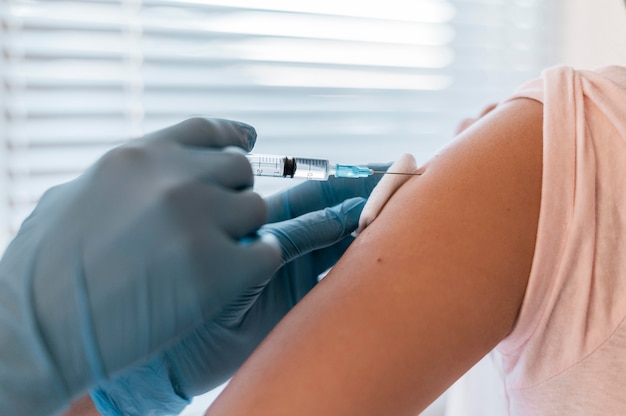
Vaccinations are a great way to protect yourself from harmful diseases, but understanding the entire process can be a bit complex. Your current health and other factors need to be considered when getting vaccinated. So, where do you start?
To get the most out of your vaccination, you need to know the entire process. Here’s a detailed guide on what getting vaccinated involves from start to finish.
First, it’s helpful to read up on the vaccine you’re planning to take. This knowledge gives you a better grasp of the entire vaccination process—from what vaccines are made of to how they affect your body. With a solid foundation, you can focus on factual information.
Being aware of potential risks and side effects means you can prepare yourself or your loved ones if they occur. Educating yourself also helps you spot misinformation. Medical research is thorough and constantly reviewed by professionals to ensure accuracy. Where you get your information is crucial. Articles reviewed by experts, government websites, or trusted sources like the Vaccine Injury Help Center are reliable.
If you still have questions about vaccination, discussing them with an expert, like your doctor, is the best approach. Doctors have years of education and training, making them invaluable for addressing your concerns. Sometimes, a checkup might be necessary as certain conditions can increase the risk of side effects. Your doctor can determine if it’s safe for you or your loved ones to get the vaccine. Additionally, they might know about free vaccination locations, often organized by the government or private groups, which could be convenient for you.
Once your doctor gives the go-ahead, remember to keep your appointment date in mind. Facilities prepare their vaccine supplies based on scheduled appointments, so it’s crucial to inform them if you can’t make it. Simple steps like staying hydrated, resting, and avoiding painkillers prior to your appointment can ensure a smooth process and help your body respond well to the vaccine.
Before the shot, you’ll usually have a quick screening where healthcare workers recheck important details like family history and pre-existing conditions to confirm you’re clear to receive the vaccine. This is a good time to verify if you need a second dose and schedule it if necessary. Presenting checkup results from your doctor can also be helpful. Extra information about a patient always aids in making informed medical decisions.
Although rare, adverse side effects can occur. After getting the shot, you’ll be asked to wait for a while to monitor any reactions. Medical workers look out for specific signs, ensuring the dose administration was successful, and they can immediately address any severe reactions.
As your body creates antibodies, you might experience side effects, which is normal. Staying hydrated, resting properly, and avoiding alcohol and smoking can help your body through this period. Planning ahead by preparing meals or utilizing food delivery can also make your recovery smoother.
If your symptoms worsen or last longer than a few days, contact your doctor immediately. It’s essential to listen to your body and give it the rest it needs, especially after a vaccine shot.
Some vaccines require a second dose for full immunity. Keeping track of your next appointment date is crucial. One effective way to remember is by noting the date and time immediately and setting reminder alarms as it approaches.
Following medical guidelines is crucial for vaccinations. Completing all necessary doses ensures peace of mind about your health and protection. Vaccinations are a key step in maintaining overall health, and while there are risks, the benefits far outweigh them.
Getting vaccinated can be a shared journey with your loved ones, starting with understanding the facts and being prepared for the process.